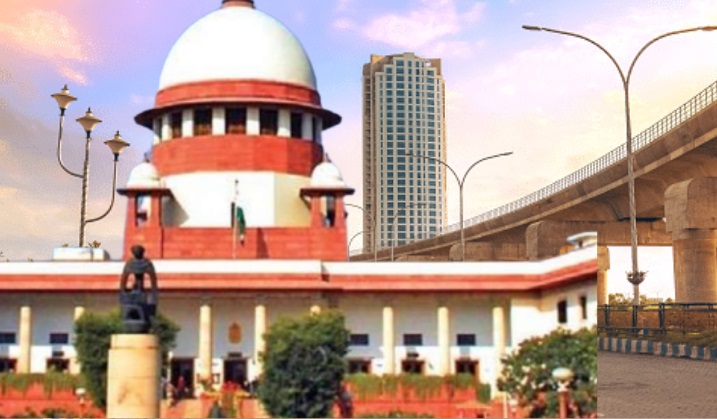Indian legal system is particularly famous for its strict adherence towards the protection of the interest of relatively weaker sections. It has its downsides as well since sometimes nefarious elements use weaker sections of the population as a tool for hampering national interests. Now, Indian Supreme Court seems to have decided to tighten its noose on those elements.
Gujarat based Company approached Delhi High Court
Recently, Montecarlo Limited, a Gujarat based construction firm was disqualified from participating in Bullet Train Project. Its bid for the project was rejected by the Japan International Cooperation Agency (JICA), the agency involved in the implementation of the project.
Read more: Massive: 10 new routes for India’s ambitious bullet train project
Montecarlo decided to challenge it in Delhi High Court. The Court took a sympathetic view towards the petitioner. In its order, Court asked National High-Speed Rail Corporation (NHSRC), the final authority forbid rejection to reconsider the bid by Montecarlo.
Supreme Court did not like Delhi High Court’s approach
The matter was then challenged in Supreme Court. The highest Court of land disapproved the way in which Delhi High Court casually decided on the matter.
A bench of justice M R Shah and A S Bopanna categorically stated that because there were no specific allegations of mala fide and/or favouritism, the case did not deserve scrutiny by High Court.
Court raises concerns on judicial intervention
Cautioning High Courts against such casual approach towards high-cost investment decisions, Supreme Court said, “These investments from developed nations are made on the basis of non-negotiated (sic) terms and conditions, where the sole discretion as to what would be the conditions of the investments and on what terms the contractors would be chosen to implement the project, vests with the investor foreign developed nation,”
The Court of last resort is of the opinion that the judiciary should intervene in such a way that the intervention does not cause any delay in the execution of projects. To support this assertion it reasoned, “It is difficult for a developing country to go ahead with such a high-cost project unless the developed country grants loan/subsidy and/or is ready to fund such high-cost projects. Interference by courts midway and delay in projects like these… may affect future investments/funding”
Putting forward its arguments on the above lines, Supreme Court set aside the order of the Delhi High Court. In its judgment, it said, “Since the ultimate decision in such matters had to rest with the investor, who was of the view that the bid submitted by Montecarlo suffered from material deviation”
Petitioners try to halt India’s developmental story
Over the last few decades, India’s developmental story has faced several hurdles from petitioners. Various foreign-funded NGOs have India’s welfare state concept as a shield and used it to hamper developmental projects. They never lacked the money to approach the Courts.
Recently, Courts have tried to strike balance between developmental and socialist interests. In December 2021, TFI reported that a bench comprising of Justices DY Chandrachud, Surya Kant and Vikram Nath refused to intervene in the Defence ministry’s decision to widen the roads as a part of the Char Dham project.
It’s a positive sign for India’s developmental prospects that Courts are now cautioning against the hindrances in India’s development. Court’s recent decisions will act as a caution for interest groups hell-bent on stopping India’s development.
